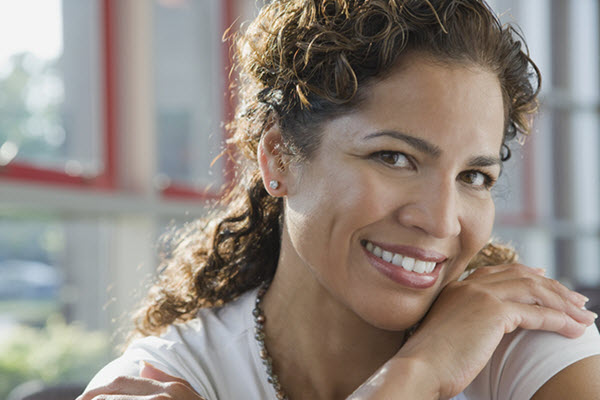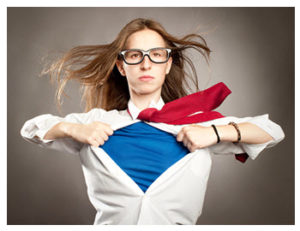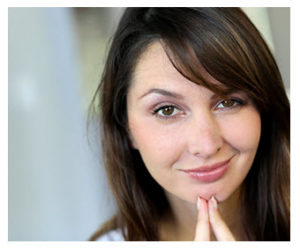How often do we see ourselves as others do — measuring up to expectations or falling short? How many of us discount praise, or tune it out? With a few years under our belts, are we more apt to see ourselves as others see us, especially in positive ways?

Sometimes we see ourselves as more than we really are. Sometimes we see ourselves as less. And that “more or less” is not necessarily a blanket assessment, nor a static one; we occupy a breadth of roles in life and may feel more worthy and at ease in some and less so in others.
I recall a movie I saw years ago in which the protagonist was chided for not being the hero in her own life, but rather, being too comfortable as a supporting character. In fact, she tolerated being nudged aside, as others, generally men, stepped in to take the spotlight. Like so many women, she was warm, helpful, and incredibly competent in her profession. But her lack of self-confidence was crystal clear. And this morning, I can’t get that character’s storyline out of my head.
Overblown Ego? No Ego at All?
I’m thinking about wallflowers, raging narcissists, and all the variations in between. I’m thinking about how difficult it is for some to accept a compliment, how easily others process a heartfelt “good job,” and how some demand constant praise packaged up in the most egregiously hyperbolic superlatives — warranted or not.
Most of us who don’t dwell in narcissistic denial may see ourselves as more heroic in one way, less so in another, or not heroic (or important or valuable) along a broad spectrum of qualities, competencies, and behaviors. And let’s face it — life is so fast-paced that we may have zero mind space for self-reflection of any sort, much less pondering our image-reality gap.
Still, we may see our smiles returned when we are bright and chipper with co-workers — a smile can make someone’s day — and never realize that our sunny attitude alone is a gift. Wouldn’t we do better not to knock the good moments we’re putting out in the world as insignificant?
Yo! Best Self! You There?
It seems to me that many of us, myself included, save our “best selves“ for people we don’t know very well, for the people we work with, or for people we are just getting to know. Simply put, we want to make a good impression. With time, trust, and familiarity, we lower our guard and show ourselves to be more, well… flawed. If we have plenty of good days, this is fine. If we have an excess of not-so-good days — our crankiness or insecurities or worries spilling over — that’s another matter.
Another challenge? When marriage or lomg-term relationship does anything but bring out our best selves.
If you’re anything like me, you beat yourself up for this, convinced that the person you’re offering the world is far worse than she is — convinced you don’t measure up — though you cut others slack for the very same words or behaviors.
What’s up with that?
Real Friends Offer Real Feedback
 I had an illuminating conversation with an old friend recently — someone who has known me for many years — and he shed light on some of my more “interesting” periods in the past two decades. Looking back, I lived the “everyday heroism” of millions of single mothers struggling to do right by their kids. Yet I tend to see everything I did wrong and everything I deemed insufficient, as my friend reminded me that I am my own worst critic. He also reminded me that all parents find fault with something they did or didn’t do.
I had an illuminating conversation with an old friend recently — someone who has known me for many years — and he shed light on some of my more “interesting” periods in the past two decades. Looking back, I lived the “everyday heroism” of millions of single mothers struggling to do right by their kids. Yet I tend to see everything I did wrong and everything I deemed insufficient, as my friend reminded me that I am my own worst critic. He also reminded me that all parents find fault with something they did or didn’t do.
I know that, but…
During some of those years, my struggles with feeling like I was “enough” — that is, that I wasn’t — were obvious to anyone and everyone. During other periods of time, I was more able to balance the hard days with the ultimate good that I saw in my life. And I can’t help but wonder how friends and acquaintances saw me through these ups and downs. This morning, I am led to wonder how others see me now, navigating other challenges that strain every fiber of good nature and optimism (and self-assurance) some days, and less so on others.
The fact is… I am still engaged in a juggling act, scrapping for survival, though several factors in fighting “the good fight” have changed.
But does “not enough” still dog me? As “looksism” and ageism lower the boom on certain options, do I succumb? Am I brave enough to think outside my own proverbial box? Do the challenges so many of us face as midlife women on our own spur us to work harder and smarter and tougher — or do we let societal forces and struggling self-esteem hold us back?
Am I more comfortable when I am not the hero in my own life? And what if comfort is an impediment to survival?
Ah… Positivity
Don’t we all want to make a good impression? Better still, wouldn’t we all prefer to be a positive influence for those with whom we interact, someone people enjoy being around? Can we achieve a fully fleshed-out self, a participatory self, an acknowledged self — that can find a viable and unobnoxious amount of spotlight in a promotionally preoccupied world?
Don’t we also want our projected positivity to be genuine? Can’t our “lesser” days feel acceptable, particularly to ourselves?
I still find myself surprised at the way my old demons — always reawakened by that inner critical voice — arise at inopportune moments. And in those moments, I am prone to self-deprecation, unhelpful self-talk, and a bullying blind spot when it comes to how others perceive my manner, my contributions, or my presence. Surely, there are both physical and emotional triggers involved when this occurs — lack of sleep, pain, hunger, a sensory memory that flashes me back to darker days.
 Fortunately, this usually occurs in a personal context rather than professional. Nonetheless, I certainly experience my share of relationship and social scenarios when I’m sure I’m not measuring up. But what if I’m wrong? Or only right in that assessment some of the time?
Fortunately, this usually occurs in a personal context rather than professional. Nonetheless, I certainly experience my share of relationship and social scenarios when I’m sure I’m not measuring up. But what if I’m wrong? Or only right in that assessment some of the time?
Have the factors affecting your self-esteem changed over the years? Do you have a greater or lesser sense of measuring up? Are we still planting too few seeds of positive self-image in our girls? Do we all need less judgmental human mirrors?
You May Also Enjoy
D.A. – I think you have done a very accurate assessment of human behavior, at least ones I have observed.
How often do I see myself as others do? I can’t even begin to answer as I get little feedback. When someone whose opinion I trust makes any personal observation I’m very grateful for the insight, and that they care enough to comment. I’ve heard it said that you find it particularly significant when someone sees and values the unique aspects of yourself, and I certainly do, but again, that is rare.
On starring in your life – One person I know refuses to be the center of her own life. That person will also be unassuming and undemanding to the outside world, but the opposite to her inner circle. She says it is not about confidence, but personality. I’m not sure what to think, other than it’s complicated, with much psychology involved.
About how we affect the world – It was at least early adulthood before I realized that not only was I being affected by the world but that I was affecting others, and not necessarily positively. I decided to work at being fully present and my best self to those I encounter in public. I found that I could be warm to others, at least for short periods, and that got even easier as certain burdens eased, freeing much emotional bandwidth. But as you say, in the retreat of your personal space it is hard to maintain the same consideration with those closest.
Lately I’ve had some health issues that have greatly affected what I’ll call my physicality in the world. I’ve found myself questioning my own worth, and indeed my own sense of self. I’ve found myself wondering if I’m still even seen as an individual, or disregarded, as a stereotype of disabilities. I’m relatively OK with the inevitability of that in the coming decades, but to find myself considering it now has been disconcerting.
Robert,
I’m sorry you are having physical health issues in these moments. From my perspective, you offer the world a great deal of wisdom that you willingly share with grace. You are not your disabilities, nor am I. We are all worthy. It’s that some people simply fail to see our value. Your wisdom, humor and kindness have assisted my life tremendously!
Thank you so much, TD. I know very well that my occasional internal narrative is only partially true. Moreover, I know that entertaining that narrative is self defeating.
I also know that a few sincere kind words can do wonders, so yours are much appreciated.
And, for what it’s worth, treatment for what I take to be my main condition had me very down physically (and therefore emotionally) for the first half of this year, but very much improved recently, something I would have been hard put to imagine just a few weeks ago.
Wishing you the best of luck in your own next phase!
Good to hear your health is improving with treatment and care.
Not clear if Roswell will be my next phase. While the process is terrifying, I am learning so much. It will take a lot of courage and I appreciate your kind wish for good luck along my way!